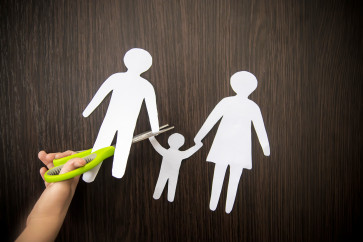As someone whose primary love language is physical touch, I used to think sleeping apart was a relationship red flag. A “sleep divorce”, no matter how rational it sounded, felt cold, like giving up the nighttime version of love.
Cuddling releases oxytocin, the feel-good hormone that helps us sleep. Sharing a bed isn’t just romantic, it’s healthy.
But people are particular about sleep. One friend needs a massage every night before bed. Another can’t stand the sound of her partner sneezing. Then, there’s snoring, blanket-hogging, and air-condition temperature wars.
At what point does tolerating someone’s quirks become martyrdom? Is it still intimacy if you love someone deeply… from the next bedroom?
It turns out I’m not as conservative as I thought. I love my privacy a little too much to cling to coupledom 24/7. A room of one’s own, every now and then, counts as precious me-time in my book.
And I’m not alone. More couples are experimenting with separate sleeping arrangements, not because they’re unhappy, but because they’re simply tired. Literally.

Thank you!
For signing up to our newsletter.
Please check your email for your newsletter subscription.
Rethinking the marriage bed
The term “sleep divorce” gets tossed around as a cheeky solution for poor rest. Unlike pisah ranjang (the euphemism for a fractured marriage), it doesn’t necessarily mean things are falling apart. In fact, it might signal a relationship that knows how to adapt.
“Sleep divorce isn’t good or bad. Everything comes down to what the couples need and how these needs are met,” said Jenny Jusuf, the scriptwriter of Filosofi Kopi (2015) who writes about self-love and dating online.
Maybe there’s a new baby. Perhaps one of you is sick, working night shifts, or training for a fitness goal. Suddenly, the logistics of sleep become as important as the emotions wrapped in it. What used to be a nightly ritual becomes a weekly one, or a weekend thing, or whatever works to keep the marriage steady.
It depends on how those needs are negotiated, pragmatically, maturely and rationally.
Indra (not his real name), for example, chose to sleep separately from his wife while following a strict sleep and wake-up schedule as part of a fitness program. It has nothing to do with intimacy, and everything to do with discipline.
Though it coincided with the birth of their first child, Indra and his wife have an understanding.
“As a couple, we know that we want to raise a healthy and fit family,” he said.
“The conversation was straightforward and easy because the intention was clear from the beginning.”
For others, it’s about practicality. Stella (not her real name) and her husband started sleeping in separate rooms when their daughter was born. Five years later, they’re still at it.
“We’re hoping that our daughter can sleep by herself when she turns six,” Stella said.
“But it has worked for us. We both work from home, so we have the whole day to be together, we eat lunch and do pick-ups together.”
Their bond hasn’t weakened. If anything, it’s become more intentional. Her husband, who sometimes has panic attacks at night, still comes to her for comfort.
“I think the fact that he’s still willing to enter my space, even though his legs were trembling, showed that he still trusts me,” Stella said.
“I think that’s intimacy.”
From social construct to subconscious discomfort
So why does sleeping apart somehow carry the sting of failure?
Historically, sharing a bed wasn’t even the norm. European royals slept apart as a status symbol. In Asia, co-sleeping with children is common, and the bed isn’t always where intimacy, from sex to caressing, happens. Sleeping means rest, not romance.
Somewhere along the way, the shared bed became the gold standard, and opting out started to feel unnatural and counter-cultural, even shameful.
For me, it’s not a question of love; I’m just annoyed at having to fight over blankets every night.
According to marriage counselor Rani Anggraeni Dewi, every small annoyance is worth discussing. Is the room too cold for you and not for your partner? Is your husband snoring too loud?
Find a solution first: Use a separate duvet, set the air-conditioner to auto mode, or go to a sleep doctor.
(Shutterstock)
“Maybe you can choose to sleep together in the beginning before moving to another room,” Rani said.
“Couples need to prioritize compromising to meet each other’s needs before quickly resorting to separate beds or bedrooms.”
And if you do decide to sleep separately?
“Make sure that the decision to sleep separately is fully agreed by both parties,” said Jenny.
“It has to be a genuine agreement. Not something that one partner follows begrudgingly.”
Our bodies can store discontent, showing up physically as a discomfort when sleeping with our partners, and then snowballing into resentment.
In fact, sometimes, sleep issues point to bigger problems.
“We may feel that it’s the temperature of the room or how the other person moves during sleep, but these are just our bodies reacting because of unresolved issues,” Rani said.
In other words: Don’t use sleep divorce to avoid bigger conversations. Trial it. Talk about it. Check in.
Intimacy at its core
Intimacy, after all, isn’t measured in inches but in intention. For some couples, the healthiest way to stay close is to sleep apart.
“Try it for two weeks, then evaluate whether it improves the relationship,” Jenny said.
“It’s still ideal for couples to sleep together, even though the couple agrees not to do it every day.”
And when sleeping together isn’t a daily routine, intimacy shouldn’t vanish with it. Couples should still be in sync.
“Daily, shared rituals before bed are necessary to maintain connection. Pray, meditate, have deep talk at an emotional level,” Rani said.
“Physical intimacy fuels us with positive energy. We’re flooded with good hormones that give us mental clarity.”
Personally, I still like the idea of falling asleep next to someone. But I’ve been in enough relationships to know that closeness doesn’t always look like spooning under the same blanket.
Sometimes, the best way to show love is to let each other rest.
Relationships evolve. For some, sleep divorce can be a necessity; for others, preference. It can be temporary or permanent, an outcome or a strategy, a phase or a fix.
And isn’t that what a good relationship is about? Not about where we sleep, but how honest and vulnerable we can be with each other.
Michelle Anindya is a writer and journalist. From her home in Bali, she writes about anything from coffee to tech.

























